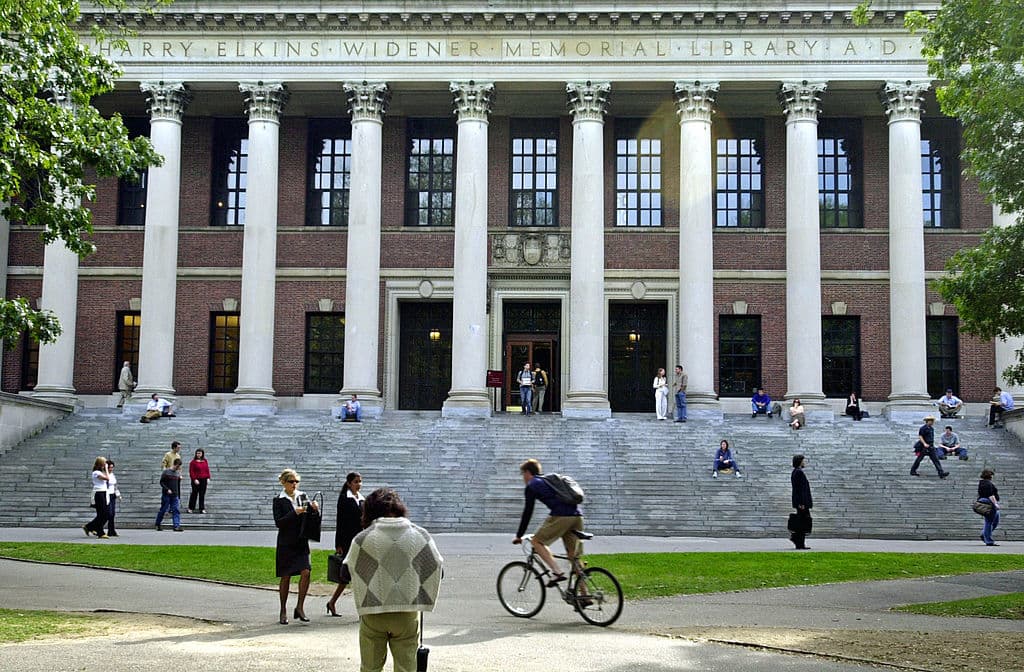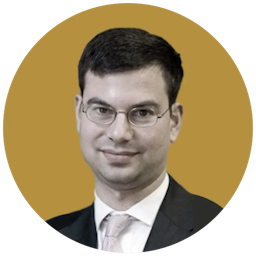Plagiarism Scandal at Harvard Emerges as a Symptom of a Bigger Problem — the Lack of Original Thinking
Claudine Gay’s absence of footnotes echoes a university bereft of new and creative thinking.

Members of Harvard’s governing board trying to figure out what to do about the university’s president, Claudine Gay, must feel a bit like the Union soldier David Thompson, writing home from Antietam: “Between the physical fear of moving forward and the moral fear of turning back, there is a predicament of exceptional awkwardness from which a hidden hole in the ground would be a wonderfully welcome outlet.”
The four-paragraph statement that the Harvard Corporation issued stopped short of ousting President Gay. Then again, too, it was hardly a ringing endorsement. The board’s first paragraph disclosed that it had required “extensive deliberations” to reach confidence in Ms. Gay. The second paragraph faulted the university’s response to the Hamas terrorist attack and noted Ms. Gay’s apology for her congressional testimony.
The third paragraph found “instances of inadequate citation” in Ms. Gay’s scholarly writings. The fourth paragraph expressed a “strong belief that calls for violence against our students and disruptions of the classroom experience will not be tolerated”— a “belief” that is contradicted by events on the Cambridge, Massachusetts, campus this fall, including events after Ms. Gay appeared before the House.
That takes some brass, given how close the decision was by the Harvard Corporation. Had the “senior fellow” of the 11-member board, Penny Pritzker, gone the other way, some of those close to the Corporation reckon, Ms. Pritzker would have had the backing to oust Ms. Gay. The story may not be over yet. Absent rapid and dramatic improvements on the campus, Ms. Gay will be gone faster than one can say “Elizabeth Magill.”
Maybe it’ll happen over the summer, when faculty and students are mostly away. Maybe it’ll happen after a decent enough interval that the university can maintain the appearance that the president isn’t being hounded from office by determined watchdogs such as Bill Ackman, Congresswoman Elise Stefanik, Lawrence Summers, and academic integrity researchers Chris Rufo, Aaron Sibarium, and Phil Magness.
I’ve been warning about antisemitism at Harvard since well before Ms. Gay acceded to its presidency. The problems are deep and go beyond any single individual. Under Harvard’s decentralized structure, a president’s powers are limited. Yet Ms. Gay has shown nothing so far in terms of a body of work or behaviors that demonstrate she has it in her to restore Harvard’s excellence. The issues, it is increasingly recognized, go well beyond antisemitism.
They extend to lack of viewpoint diversity, lack of free speech, and dearth of independent thought on campus — plus a general decline in standards, which has led to mediocrity instead of excellence. All this is combined with a fierce defensiveness and resistance to outside accountability. Or even to internal accountability from constituents other than the far-left professors. Anyone who calls out the problems is accused of interfering with academic freedom.
Ms. Gay has risen as far as she has at Harvard in part by trying to keep everyone happy. In her inauguration speech she spoke of “open inquiry and freedom of expression as foundational values of our academic community” and “the inclusion of diverse viewpoints.” Yet she announced her new administration with an article in the university’s official organ, the Harvard Gazette, “Claudine Gay has big plans.”
Those plans are about, Ms. Gay said, “centering the most pressing challenges that the world faces as University priorities. For me, those include democracy and all the ways in which democracy is faltering around the globe, the climate crisis, and inequality.” In that sense, the plagiarism scandal around Claudine Gay isn’t a sideshow. It is symptomatic of the bigger problem, which is lack of original thinking.
Imagine had Claudine Gay come in talking about the threat of Islamist extremist terrorism, or of the decline in church attendance that is associated with deaths of despair, or of the need to rebuild the defense industrial base, or the urgency of combating Communist Chinese aggression. Or of preventing Iran from getting the A-Bomb, which a committee — on which an earlier president of Harvard, James Conant, served — advised President Truman to drop on Japan.
Instead she went the conformist and timid route, following other elite college presidents. Penn’s president, Elizabeth Magill, said last year in her inaugural address: “Climate change brings existential threats.” MIT’s president, Sally Kornbluth, said six months later in her inaugural address: “Today, at least 20 percent of MIT faculty work on questions related to climate change: the greatest scientific and societal challenge of this or any age.”
Claudine Gay, in her inaugural address four months later, spoke of “the challenge of protecting a planet and its people from the devastation of climate change.” The Gay speech was titled, with no sense of irony, “Courage to Be Harvard.” How much “courage,” Harvard wonders, does it take to prioritize and talk about precisely the same problem that the other new elite college presidents are also talking about?
Groupthink helped get Ms. Gay into trouble on Capitol Hill. The transcript records the chronology. First Ms. Kornbluth: “I’ve heard chants, which can be anti-Semitic depending on the context.” Then Ms. Magill, responding to Ms. Stefanik’s question about whether calling for the genocide of Jews violated university rules: “It is a context dependent decision, Congresswoman.” Only then Ms. Gay: “Depending on the context.”
Ms. Gay issued on October 12 a video message about how, “As members of a university community, we have a choice. We can fan the flames of division and hatred that are roiling the world. Or we can try to be a force for something different and better.” Her phrase “fan the flames of division and hatred” is straight out of Joe Biden’s August 2020 speech accepting the Democratic presidential nomination.
In it, Mr. Biden described President Trump as someone who “fans the flames of hate and division.” Maybe Ms. Gay thought that by changing the order of the words, from Biden’s “hate and division,” to her “division and hatred,” no one would notice the lack of originality? Yet even in expressing emotions, character traits, and a moral bottom line, Gay leans on other people’s language, as in her remarks at Harvard Hillel.
“Our Jewish students have shared searing accounts of feeling isolated and targeted. This shakes me to my core,” she said. When Michelle Obama talked about Donald Trump during the 2016 campaign, she used similar language: “It has shaken me to my core.” Ms. Gay went on at Harvard Hillel: “It is just the right thing to do.” That, too, is a political cliché used by everyone from Kamala Harris on Covid to President Obama on overtime pay regulations.
In the same speech, Ms. Gay said, “Where we go from here will require courage, humility, and perseverance.” Those happened to be precisely the same three attributes mentioned by Pfizer CEO Albert Bourla in a June 2022 speech accepting the Genesis Prize.
The Harvard Corporation statement about Ms. Gay said, “Harvard’s mission is advancing knowledge, research, and discovery that will help address deep societal issues.”
The issue being discovered right now is the decline of one of the world’s great universities. The National Park Service, which preserves the battlefield, describes Antietam as “the single bloodiest day in the history of the United States” and also as “one of the key turning points of the American Civil War.” Perhaps one day Claudine Gay’s presidency of Harvard will be remembered similarly in the history of American higher education.

